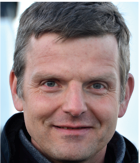High-Resolution Imaging to Unravel the Molecular Etiology of Disturbed T-Cell Antigen Recognition

T-cell defects account for ~30% of inherited human immune deficiencies. While recent progress in genome sequencing has helped identify gene defects in patients with compromised T-cell antigen sensitivity, the precise molecular underpinnings remain often elusive. This complicates the search for best therapy options for patients with frequent infections and/or organ-destructive autoimmunity. Here we propose a cutting-edge molecular imaging platform to unravel disease-causing mechanisms in patient T-cells. We will devise a planar supported lipid bilayer (SLB) system, which closely mimics the physiological context of T-cell recognition and greatly facilitates single molecule and superresolution microscopy. We expect that high-resolution functional imaging will enable us to quantitate binding, signaling and redistribution defects of key receptors, effector proteins and cytoskeletal components and help us stratify human T-cell disorders according to TCR-proximity. We will integrate imaging with state-of-the-art high-throughput genomics to identify causative mutations and with interaction proteomics to place identified genes into regulatory networks, which we will in turn verify by functional high-resolution imaging. Ultimately this hybrid approach will fill a critical gap for patients suffering from inherited T-cell defects of so far unknown etiology, enabling discovery of new genes involved in T-cell function and the development of personalized therapeutic strategies.